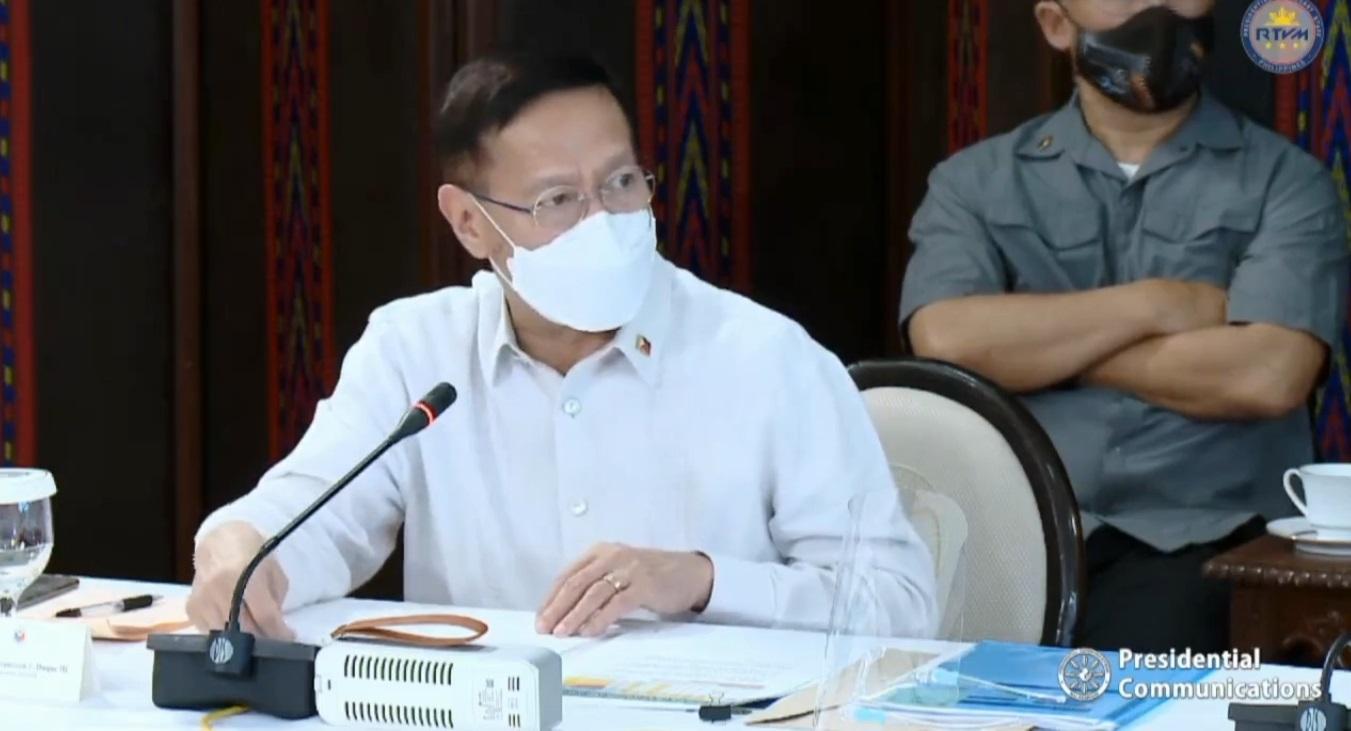NCR at “moderate risk” for COVID-19 transmission after decrease in 2-week growth rate —Duque

The National Capital Region (NCR) is at moderate risk for COVID-19 transmission, Health Secretary Francisco Duque III said as he reported the improvements in the two-week growth rate data in the Philippines.
“Nananatiling moderate risk naman ang NCR kung saan -46% from -39% ang two-week growth rate (from May 2 to 15),” Duque said in a taped public briefing aired Tuesday morning.
(The NCR is now at moderate risk after the two-week growth rate decreased from -46% to -39%)
“Ibig sabihin bumabagal na po ang pagdagdag o paglaki ng kaso (This means the transmission of COVID-19 is getting slow),” he added.
In his presentation, NCR’s two-week growth rate from April 4 to 17 or during the peak of the latest COVID-19 surge, was -5%.
From May 2 to 15, the two-week growth rate improved and is now at -46%.
For the entire Philippines, Duque said the two-week growth rate is at -24% from May 2 to 15. This is relatively lower than the 11% two-week growth rate recorded from April 4-17.
“Nito pong nakaraang linggo bumababa pa lalo ang two-week growth rate from -24% naging -22%,” he added.
(In the past week, the two-week growth rate further decreased from -24% to -22%)
For the nationwide average daily attack rate (ADAR), Duque said it has likewise improved as it was cut to 5.95 per 100,000 population (May 2 to 15) from 9.2 per 100,000 population last April 4 to 17.
In NCR, the daily attack rate was at 13.44 per 100,000 population (May 2 to 15) from 34 cases per 100,000 population last April 4 to 17, based on his presentation.
On Monday, the OCTA Research said the ADAR was at 10.71 per 100,000.
The research group said this is still considered "high risk" by the Department of Health.
On Monday, the Philippines recorded 5,979 new COVID-19 infections, bringing the total tally to 1,149,925.
NCR and the four adjacent provinces of Laguna, Bulacan, Cavite, and Rizal were placed under the strictest enhanced community quarantine (ECQ) in late March due to the surge in COVID-19 cases that saw hospitals swamped with patients.
The classification was downgraded to modified ECQ. At present, the four areas, collectively known as NCR Plus, are under general community quarantine (GCQ) with "heightened restrictions" — a classification that will last until the end of May.—AOL, GMA News



